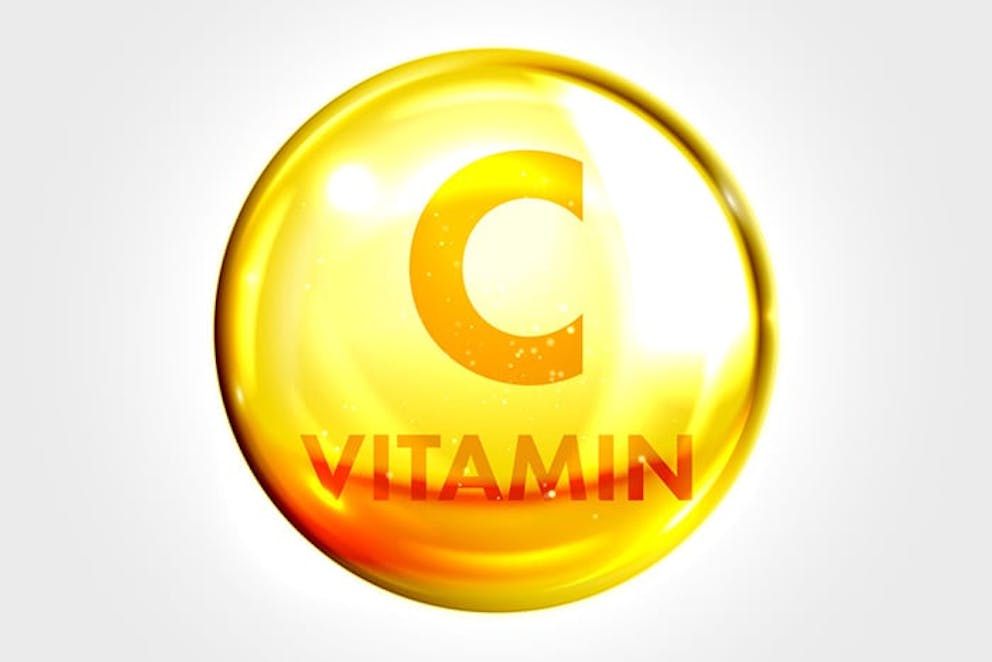4 Subclinical Vitamin C Deficiency Signs that are Extremely Common
You may already know that vitamin C is an important part of a healthy diet. But did you know that not getting enough vitamin C can lead to a surprising range of symptoms?
While a severe vitamin C deficiency, known as scurvy, is relatively rare today, many people experience milder forms of deficiency without even realizing it.
In this post, we’re going to cover the often-overlooked vitamin C deficiency symptoms, explore the functions of vitamin C, discuss what can deplete this vital nutrient, and share which foods are the best sources so that you can maintain optimal health.
What Does Vitamin C Do For the Body?
Vitamin C, also called ascorbic acid, is a water-soluble vitamin. This means that your body can’t store it, so you need to consume it regularly through your diet or through supplementation.
Vitamin C is a vital nutrient that plays numerous critical roles in the body, contributing to the growth, development, and repair of tissues.
It’s involved in several important bodily functions, including collagen synthesis, antioxidant protection, immune function, iron absorption, neurotransmitter production, and carnitine production.
Collagen Synthesis
One of vitamin C’s primary functions is in the production of collagen, a protein that holds together various structures in our body. Collagen is a key component of connective tissues, such as:
Skin
Tendons
Ligaments
Cartilage
Blood vessels
Bones
A vitamin C deficiency can impact your bone formation, leading to weaker bones.
Antioxidant Protection
Vitamin C is a powerful antioxidant that helps shield your cells from damage caused by harmful molecules called free radicals. Free radicals are unstable molecules that can damage cells and contribute to chronic diseases such as heart disease, cancer, and Alzheimer’s disease.
Vitamin C helps combat oxidative stress, which is an imbalance between free radicals and antioxidants in the body.
Immune Function
Vitamin C plays a critical role in supporting a healthy immune system. It helps stimulate the production and function of various immune cells, including white blood cells.
These cells are responsible for identifying and destroying pathogens, helping to protect the body from infection.
Iron Absorption
Vitamin C can enhance the absorption of iron from plant-based foods, helping prevent iron-deficiency anemia. It does this by converting ferric iron, a form that is poorly absorbed, into ferrous iron, a more readily absorbed form.
Neurotransmitter Production
Vitamin C is essential for the creation of certain neurotransmitters like norepinephrine. Norepinephrine plays an essential role in regulating mood, alertness, and the body’s stress response. It’s also crucial for nerve impulse transmission.
Carnitine Production
Vitamin C helps make carnitine. Carnitine is essential for fat metabolism because it helps transport fatty acids into the mitochondria, the energy-producing powerhouses within cells. The breakdown of fatty acids in the mitochondria provides the body with energy.

Recognizing Vitamin C Deficiency Symptoms
A mild or moderate vitamin C deficiency may not show obvious symptoms right away. However, as the deficiency progresses, several symptoms can manifest.
Some common vitamin C deficiency symptoms include fatigue, slow wound healing, joint pain, bleeding gums, dry skin, easy bruising, nosebleeds, a weakened immune system, and mood changes.
Fatigue and Weakness
Feeling tired and weak, even after getting enough sleep, is a common early symptom. Remember that vitamin C is necessary for carnitine production which plays a key role in converting fat into energy.
A deficiency can hinder this process, leaving you feeling fatigued. If you're experiencing fatigue, you might also have inadequate vitamin C intake.
Slow Wound Healing
Since vitamin C plays such an important role in collagen synthesis, a deficiency can impair wound healing. Collagen is essential for forming new tissue and repairing damaged skin. Cuts, scrapes, and other wounds may take longer to heal when you are not getting enough.
Joint Pain and Swelling
Because vitamin C is essential for healthy collagen, insufficient intake can impact joint health. You may experience pain, stiffness, and swelling in your joints.
These issues may be particularly noticeable in the morning or after periods of inactivity. Severe joint pain can be debilitating.
Bleeding Gums and Scurvy
Bleeding gums are another symptom of a deficiency. This occurs because vitamin C is essential for healthy blood vessel walls, including those in your gums.
In severe cases, a vitamin C deficiency can cause scurvy. Scurvy is a disease caused by a severe deficiency, and it can lead to tooth loss.
Dry, Damaged Skin
Vitamin C's role in collagen production significantly affects your skin’s health and appearance. Low levels may result in dryness, roughness, and slow healing of minor skin abrasions.
The reduced collagen production in a deficiency may lead to impaired skin elasticity, increasing the likelihood of wrinkles. You might notice red spots on the skin or perifollicular hemorrhage which are tiny red spots that appear around hair follicles.
Easy Bruising
Collagen also provides strength to blood vessels, so when levels are insufficient, it can weaken capillaries. Weakened capillaries are more prone to damage, even from minor bumps or pressure.
Bruises develop when small blood vessels rupture, and the blood leaks into the surrounding tissues. You might notice that you bruise more easily than usual, and these bruises may take longer to heal.
Nosebleeds
Similar to easy bruising, nosebleeds may occur due to fragile blood vessels in the lining of the nose. Even minor irritation or dryness can cause these blood vessels to break open and bleed when your vitamin C levels are not optimal.
Weakened Immune System and Increased Infections
While vitamin C doesn't directly cure colds, it supports a healthy immune system. When your vitamin C levels are low, your immune function is compromised, leaving you more vulnerable to common infections, and it may take you longer to recover.
Mood Changes
Vitamin C’s impact on neurotransmitters, particularly norepinephrine, means that it can affect mood regulation. Studies have shown that deficiency is associated with an increased risk of depression, anxiety, irritability, and mood swings.
Mental illness can be caused by a multitude of things, so it's important to consult with your doctor.
While these are some of the more common symptoms, the exact symptoms can vary from person to person, depending on factors like diet, lifestyle, and overall health.
What Can Deplete Vitamin C in the Body?
Several factors can deplete vitamin C levels in your body. By understanding what impacts these levels, you can make informed choices to support optimal intake. These include a poor diet, smoking, alcohol consumption, stress, medical conditions, and medications.
Inadequate Dietary Intake
The most straightforward way to develop this deficiency is not consuming enough vitamin C-rich foods. Limiting fruit and vegetable consumption, particularly fresh produce, is a primary cause.
Smoking
Smoking damages the body in countless ways, but one that you may not realize is that it depletes your vitamin C levels more rapidly than in nonsmokers. Smoking generates free radicals that increase the body's need for antioxidants like vitamin C.
Alcohol Consumption
While moderate alcohol intake may not significantly impact vitamin C, chronic and excessive consumption can interfere with its absorption. Additionally, alcohol can deplete the body’s stores of other nutrients crucial for vitamin C utilization.
Stress
The body’s demand for vitamin C increases during times of stress, both physical and emotional. Stress triggers the release of hormones like cortisol, which utilizes vitamin C. Chronic stress, without sufficient dietary replenishment, can lead to deficiency over time.
Certain Medical Conditions
Some medical conditions can also lead to a vitamin C deficiency, including malabsorption disorders like celiac disease and Crohn’s disease, which impair the absorption of nutrients from food.
Kidney disease can increase vitamin C loss through urine. Cancer patients undergoing chemotherapy and those recovering from surgery might have increased vitamin C requirements.
Certain Medications
Prolonged use of specific medications like corticosteroids, oral contraceptives, and some antibiotics may lower vitamin C levels.
Getting Enough Vitamin C
Many foods are rich in vitamin C. Eating plenty of these foods is your best way to prevent a deficiency. Excellent sources include fresh fruits and vegetables like citrus fruits, strawberries, bell peppers, and leafy green vegetables.
Fruits
Acerola cherries
Citrus fruit like oranges, grapefruits, lemons, and limes
Strawberries
Kiwi
Papaya
Vegetables
Bell peppers (especially red bell peppers)
Broccoli
Brussels sprouts
Cauliflower
Dark leafy greens like kale and spinach
Tomatoes
You can easily incorporate these foods into your diet to help you prevent scurvy.
Supplementation
In addition to consuming a diet rich in these fruits and vegetables, some people benefit from taking a vitamin C supplement. Choosing a high-quality supplement derived from natural sources is crucial for optimal absorption.
This ensures that you’re providing your body with the building blocks it needs for countless essential functions. Your recommended daily intake may vary based on age, health status, and lifestyle factors.

Sunshine Secrets
Delve into the intriguing link between vitamin D deficiency and hypertension, highlighting the significant impact of this essential nutrient on blood pressure regulation. Insufficient levels of vitamin D can lead to increased blood pressure and heightened risk of cardiovascular diseases.
To combat this, adequate sun exposure and supplementation are crucial. Additionally, incorporating fermented foods like kimchi and sauerkraut into your diet can further enhance cardiovascular health.
When comparing kimchi vs sauerkraut, both are rich in probiotics that support a healthy gut, which is vital for overall well-being and can indirectly influence blood pressure.
Kimchi offers a spicy, nutrient-dense option with vitamins A and C, while sauerkraut provides a milder taste with a high vitamin K content.
By combining the benefits of vitamin D and fermented foods, you can take a comprehensive approach to managing hypertension and promoting heart health.
Conclusion
Recognizing the signs of deficiency is the first step in ensuring adequate vitamin levels. If you’re experiencing any of the symptoms mentioned or suspect you may be deficient, consider talking with your doctor.
Getting your vitamin C levels checked and making appropriate changes to your diet or supplement regimen are great ways to support optimal health.
Previous blog
Dr. Berg Does Diet Experiment on Jared his videographerTags

Popular
08/21/2024
35.5K views
05/22/2024
33.7K views
08/19/2024
197.6K views
03/18/2024
11/21/2022




